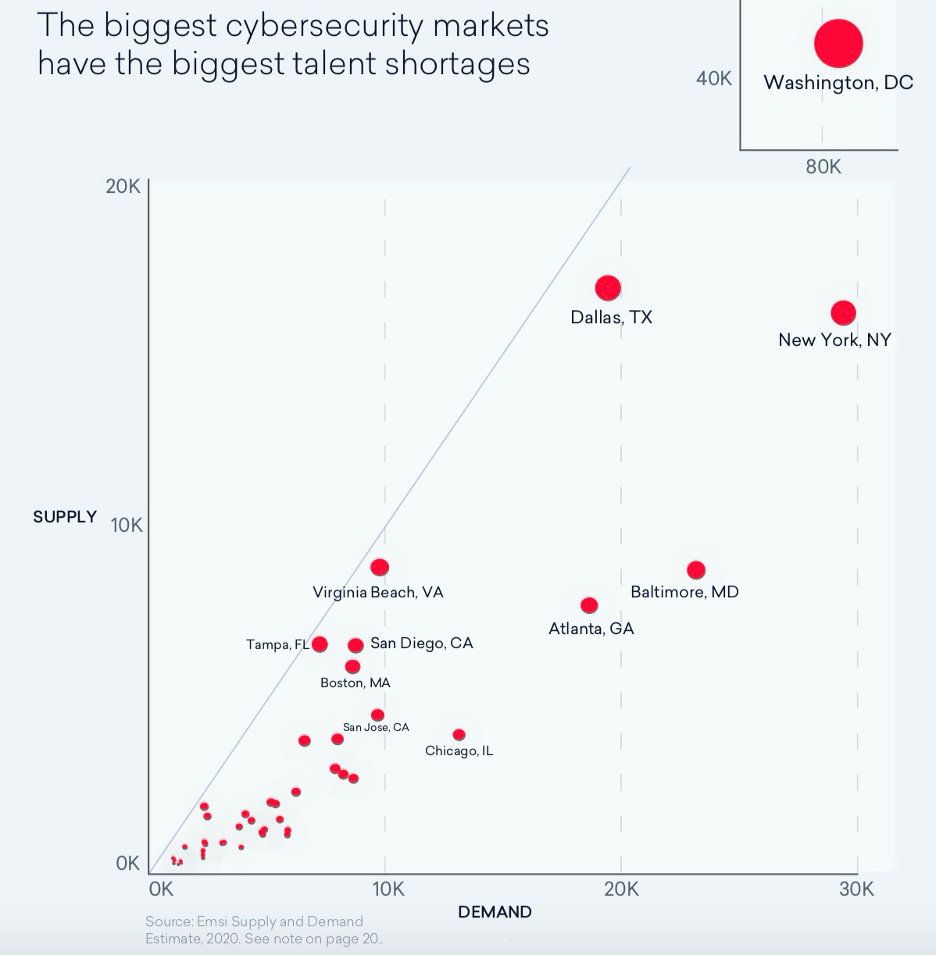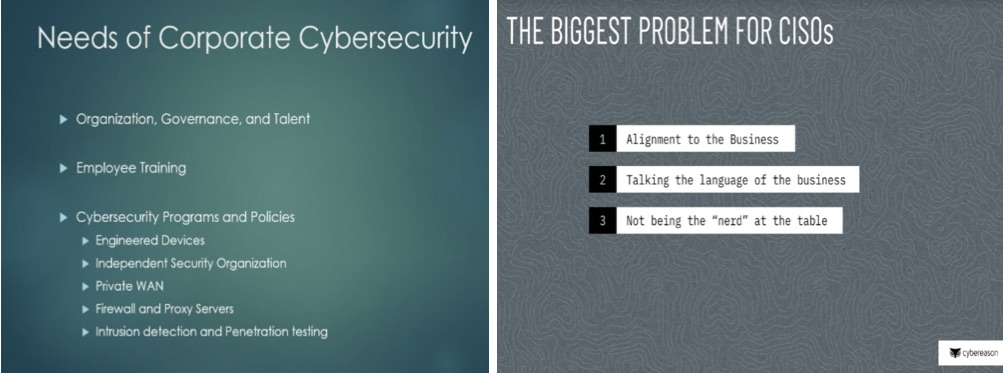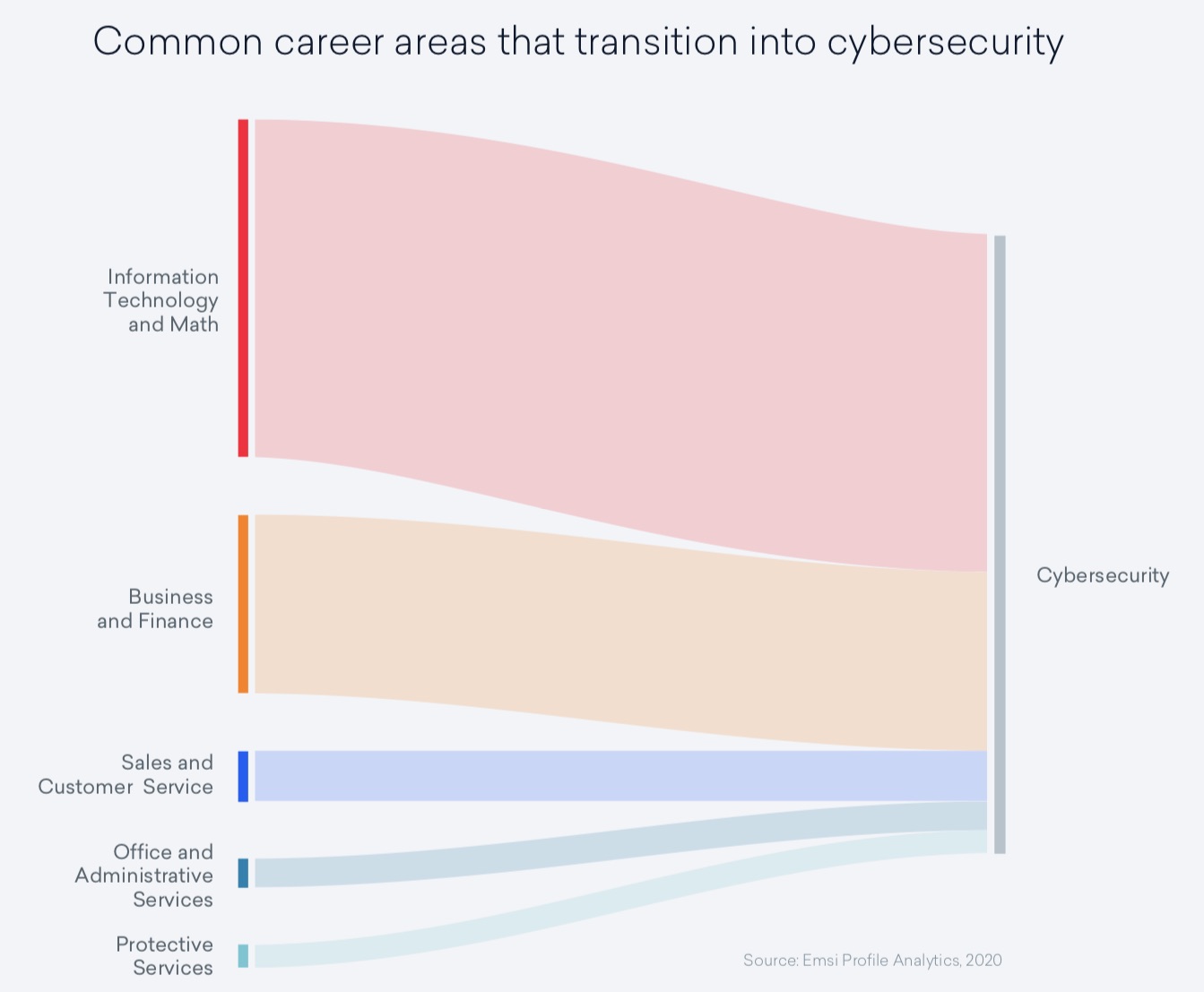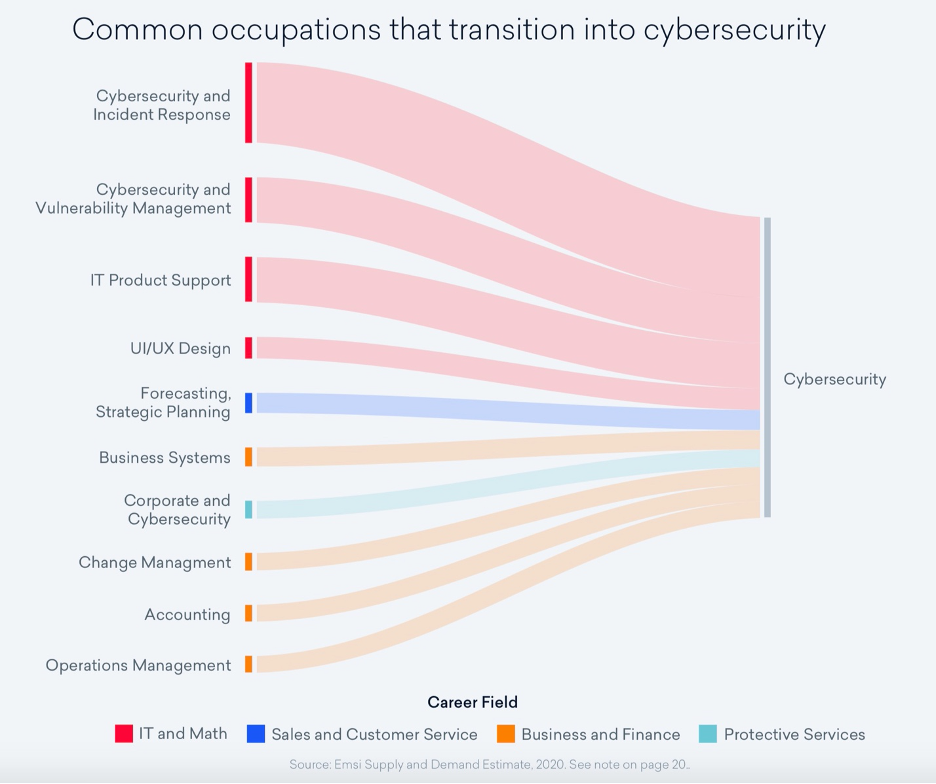When there’s a shortage, people panic. Looking for a job in cybersecurity? You can relax.
By Jen Reiseman-Briscoe
Prior to March 2020, spending hours online was considered “unhealthy.” Seven months later, most Americans are now internet-dependent: we need it to work, to learn, to socialize—and the need for cybersecurity has never been greater. According to Emsi (the go-to info-source mentioned in last week’s blog about resilient skills), cybersecurity job postings have increased by 113 percent since January 2020 alone. Yet:
“The U.S. has less than half of the cybersecurity candidates it needs to keep up with ever intensifying demand. For every 100 cybersecurity roles needed, there are a mere 48 qualified candidates, many of whom are already gainfully employed.”
October is National Cyber Security Awareness Month (NCSAM), and awareness of potential career paths—or the lack of it, more precisely—has been a huge issue: there are currently 500,000 open job postings for cybersecurity positions.
Why? There is a common misperception that cybersecurity jobs are limited to technical positions—for years, the industry has been perceived as a niche segment of the tech field. However, in today’s rapidly growing job market, positions range from the highly technical to nontechnical jobs in sectors such as marketing and management.
Meanwhile, the industry is overflowing with opportunity: As of last December, cybersecurity professionals with a bachelor’s degree commanded an average salary of $116,000. Professionals with advanced degrees can command twice that amount—or more.
Over the summer, Emsi’s analysts did some deep digging to determine potential solutions to this shortage. Their findings—released in a report titled Build (Don’t Buy) A Skills-Based Strategy to Solve the Cybersecurity Talent Shortage—came with a definitive conclusion: Employers need to reskill their employees (which you could probably infer from the title).
Spoiler: you don’t need to go back to school, and many career tracks are perfect gateways.
Once again, thanks to Emsi, you are welcome to download the full report (see button), watch the below video as a quick summary or as a supplement (recommended), refer to the companion webinar featuring Emsi Chief Innovation Officer (and video star) Rob Sentz and his colleague, analytics SVP Yustina Saleh, former director of Rutgers University’s Reporting Center of Excellence / Center of Excellence in Data Science, or refer to the at-a-glance charts (also taken from the report) for some easy visual takeaways. Read on and/or click below.
Conclusion: All jobseekers should take heart. Check out these resources for why you’d be a perfect fit for a career in cybersecurity and why cybersecurity might be the perfect career for you—including the top cybersecurity jobs of 2020 and how to get them.
Additionally, in November, the National Institute of Standards and Technology (NIST) is sponsoring National Cybersecurity Career Awareness Week , November 9 through November 14, 2020, in order to “demystify [and] raise awareness about pathways” and careers in cybersecurity.
Additionally:
WHERE ARE THE JOBS?
Cybersecurity jobs are most heavily concentrated in three metro areas that are also home to the industries investing most heavily in cybersecurity: Washington, D.C. (government/military), New York City (financial), and Dallas.




Roundup: Why consider a career in cybersecurity?
- Cybersecurity has something for everyone.
- There is a high need for skilled cybersecurity professionals.
- Cybersecurity workers are part of a dynamic industry.
- Cybersecurity has practically unlimited growth.
- You will never be bored in the field of cybersecurity.
- You get to solve problems and develop unique solutions.
- Cybersecurity allows you to earn a great salary.
- Careers in cybersecurity allow you to enjoy job flexibility.
- Cybersecurity professionals make a difference in the world and make a real impact.
- The work of cybersecurity professionals is more than the stereotypical picture most people have of a computer science major or a hacker.